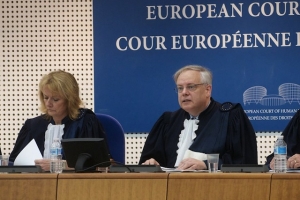Afficher les éléments par tag : Strasbourg Court
La Cour de Strasbourg déboute la Scientologie
C’était il y a cinq ans, le 27 février 2008 : la Cour de Cassation de Belgique rejetait le pourvoi introduit par l’Eglise de Scientologie. Celle-ci, objet de poursuites pour escroquerie et abus de confiance depuis plusieurs années avait en effet tenté, par cinq plaintes successives avec constitution de partie civile, introduites entre 2000 et 2008 — et toutes classées sans suite, par ailleurs —, de s’en prendre à des magistrats du ministère public, accusés d’avoir fait état publiquement de ces poursuites. Dans le même temps, en 2007, elle avait également saisi la chambre des mises en accusation de la Cour d’Appel de Bruxelles d’une demande tendant à ce que soient déclarées irrecevables les imputations la concernant, au motif, disait-elle, que ces déclarations du ministère public à la presse violaient le secret de l’instruction, méconnaissaient la présomption d’innocence et portaient atteinte au droit à un procès équitable.
Informations supplémentaires
- Auteur Jean Philippe Schreiber
Towards a European Consistency in Freedom of Religion or Belief
Since the fall of the Berlin Wall, the European Union and the Council of Europe have become increasingly prominent in the struggle with religious freedom in Europe and beyond. Three recent steps have confirmed the trend, exposing opportunities and liabilities inherent in the rise of European institutions as key actors in the interaction of law, politics, society and religion.
On 24 April 2013, in Strasbourg, the Parliamentary Assembly of the Council of Europe adopted Resolution N. 1928 (2013), ‘Safeguarding human rights in relation to religion and belief, and protecting religious communities from violence’. The Assembly warned against ‘the increasing occurrence of violent attacks against religious communities and individuals throughout the world on the basis of their religion or beliefs’ and noted that ‘there is not only physical, but also psychological violence against persons because of their religion or beliefs’. Representatives of national Parliaments to the Council of Europe therefore condemned ‘such violence in unequivocal terms’ (n. 1). Witnessing the growing conversation between European institutions, the Assembly also called on ‘the European Union, in its political dialogue with non-member countries, to enhance its monitoring of the situation of communities and individuals defined by religion or beliefs’ (n. 14).
Informations supplémentaires
- Auteur Marco Ventura







 MangoGem
MangoGem